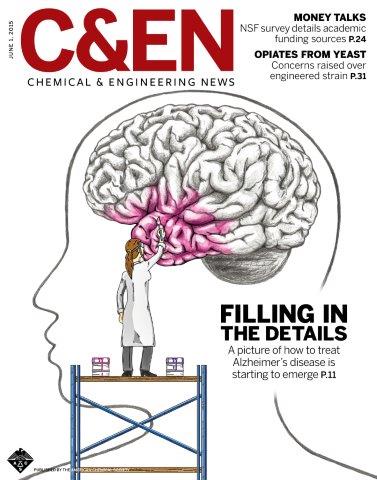FOR IMMEDIATE RELEASE
ACS News Service Weekly PressPac: June 03, 2015
Past failures pave way for promising new Alzheimer’s treatments
"Alzheimer’s Next Chapter"
Chemical & Engineering News
Since 2002, close to 300 drug candidates to treat Alzheimer’s have run into clinical dead ends. But now, having learned from those failures, researchers are testing — and retesting — a batch of the most promising compounds designed to slow the disease’s progression. An article in Chemical & Engineering News, the weekly newsmagazine of the American Chemical Society, describes what made this possible and what lies ahead.
Lisa M. Jarvis, a senior correspondent at C&EN, reports that just a few years ago, Alzheimer’s research suffered from several high-profile setbacks. Experimental therapies, many of which targeted amyloid-β peptides, failed in clinical trials. The string of disappointments added to the already-existing doubt over whether amyloid-β was causing the disease. But researchers would later acknowledge that the clinical trials — and in some cases, drugs themselves — were fundamentally flawed.
Now equipped with better technologies and a better understanding of how the disease unfolds, several pharmaceutical companies are leading clinical trials to test new Alzheimer’s drug candidates that target either amyloid-β or tau, a protein also implicated in the condition. So far, early results are promising for patients with mild symptoms of the disease. Although the therapies don’t represent a cure, they signal long-awaited progress.


